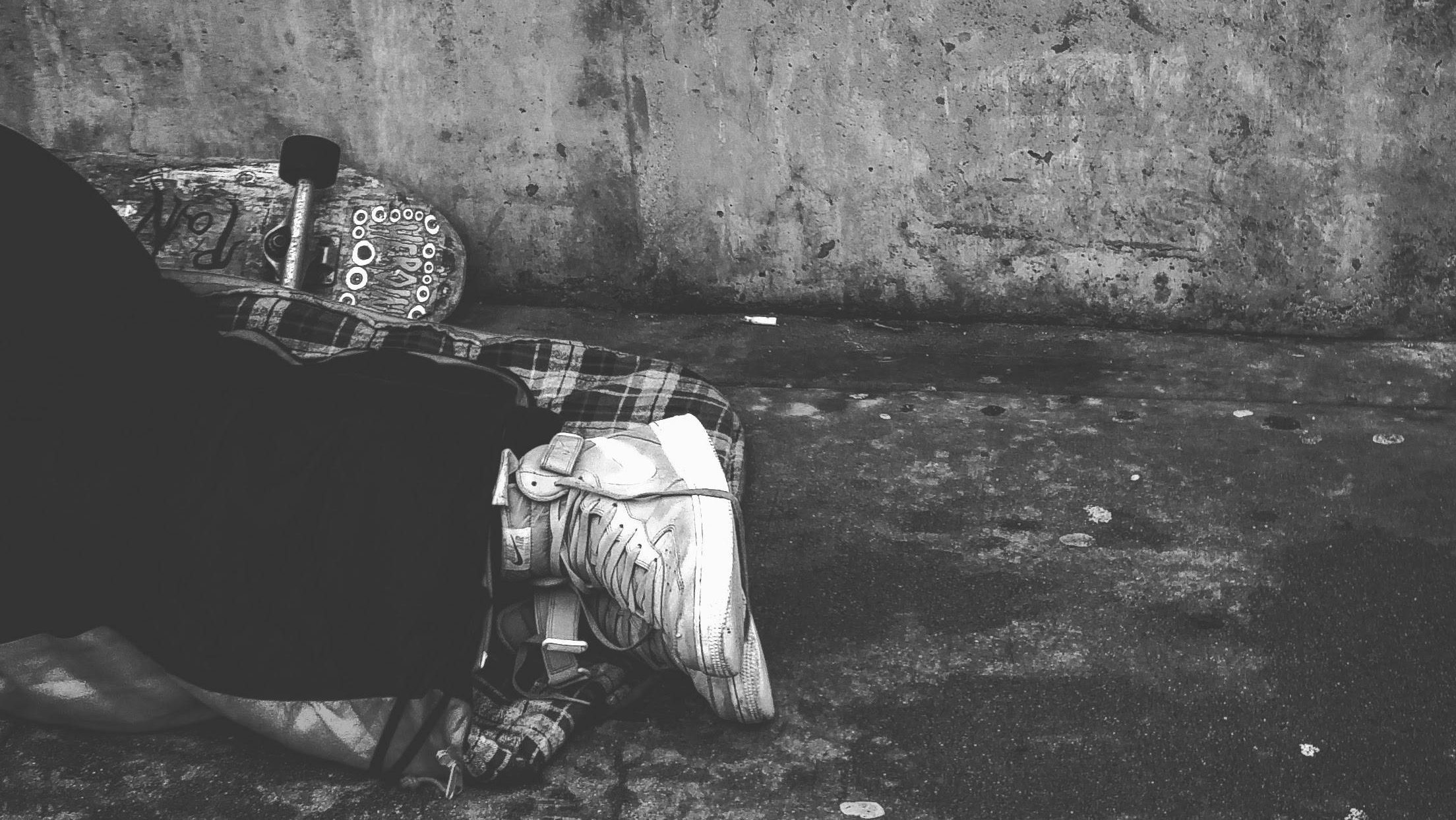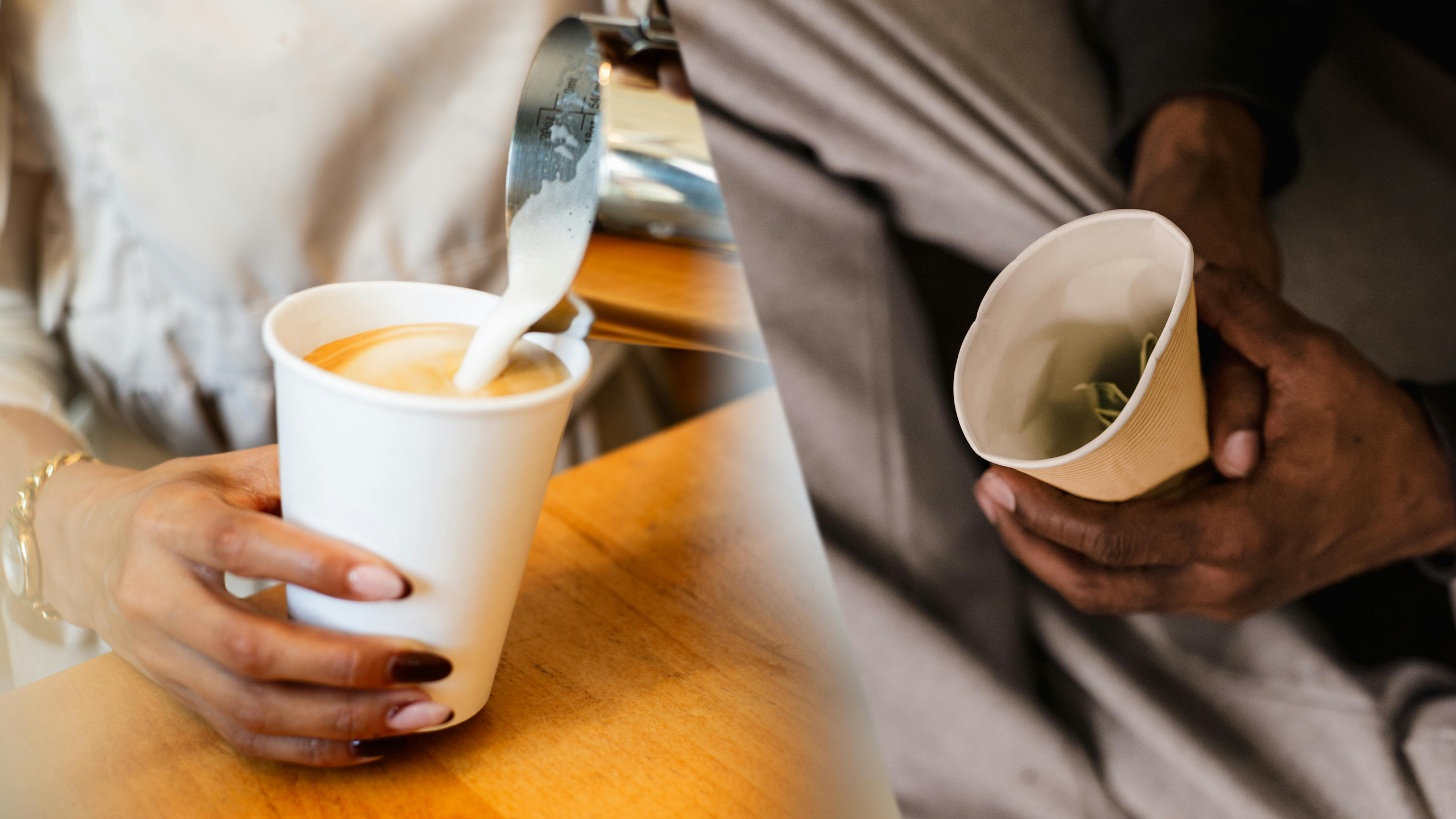
„How narrow the path is…”
Homelessness can affect anyone in a big city like Berlin. The reasons for this range from changes in family relationships (e.g., the end of a relationship, loss of a partner, etc.) to eviction, mental illness, or addiction. Losing hope of finding a new apartment soon adds to the risk of slipping into living on the streets.
To raise awareness of this issue and draw attention to the problems faced by the unhoused (in Germany there is a distinction between people without a steady home but being employed and people with neither housing nor work living on the streets), campaigns against homelessness have been taking place in many German cities for several years. Since 2024, the Day of the Unhoused (“Tag der Wohnungslosen”) has also been established nationwide on September 11. Not only does this send a message against homelessness and for social justice, but it also calls on politicians to take action.
SBW Berlin is also trying to tackle the ever-increasing housing shortage. Which is why we along with the Neukölln district office launched the “VierWändeFinden” project in fall 2024. Since then, we’ve been assisting people without housing but steady employment in Berlin both by offering them free accommodation in one of our two-person shared apartments for a period of six months and by actively supporting them in their search for a home.
Our scholarship recipients also care about this topic and help, for example, at Unionhilfswerk’s “Kältehilfe” (cold weather assistance program) during the cold fall and winter months. SBW Berlin scholarship recipient Marlene F. has recorded her impressions about homelessness in a short story.
Monday Morning
Way too early, the shrill ringing of the alarm clock wakes you up. Yawning tiredly, you drag yourself out of your warm, fluffy bed, trudge into the kitchen, and pour yourself your first cup of coffee. It’s still pitch dark outside, and the thermometer makes you shiver: “It’s far too cold to go out,” you think. Nevertheless, you get ready, get dressed, and go to work.
On your way to the train station, you stop at the little bakery on the corner, as you do almost every morning. Once again, you are spoiled by choice: cheese roll, pretzel stick, or croissant? After a moment’s thought, you pick something from the display and add a large coffee. “A second cup never hurts,” you mumble to yourself.
With your breakfast in hand, you leave the shop. You put the cup to your mouth just as your gaze happens to fall on the bridge underpass. There sits a man, wrapped in dirty blankets that barely keep him warm. Beneath him is only a piece of cardboard, soaked through by the rain. Next to him are stacks of empty bottles, too many to count. You watch as he reaches for one and opens it.
You grimace contemptuously and glance quickly at your watch. “Drinking at this time of day? I couldn’t do that,” you think, and turn away hastily to avoid the pungent smell of urine and stale alcohol. You board the warm train, glad to have left this sight behind you.
What you don’t know: Today, this man is drinking his seventh beer—not because he feels like drinking alcohol, not because he likes the taste. He drinks to survive. To numb the cold of the night that barely let him sleep. To silence the voices in his head that incessantly ask why everything turned out this way.
A few years ago, he still had a normal life. A job, a small apartment, a few friends. Then came the illness—physical, but above all mental. First, he missed work due to sick days, then he lost his job altogether. His savings lasted for a while, then ran out. He lost his apartment, and with it, his hope. The people who had once been close to him turned away. At some point, he stopped explaining, stopped asking for help.
Today, alcohol is the only thing that gets him through the day. Not because he chose it, but because it has become his last resort. Every sip is an attempt to block out the reality that others prefer to ignore.
You are now sitting in the warm train, absentmindedly turning the cup in your hand. You remember the view under the bridge and feel a slight unease. Maybe it’s too easy to judge in passing. Maybe you only see the alcohol, but not the person behind it. Maybe at some point you ask yourself how narrow the path is from a “normal life” to the cold on the street.

Picture from Timur Weber: https://www.pexels.com/de-de/foto/ein-obdachloser-halt-eine-tasse-mit-geld-9532207/
Picture from Anthony Dalesandro: https://www.pexels.com/de-de/foto/34164479/
You are probably wondering how you can help.
After reading this story, you are probably wondering how you can help. The Berliner Stadtmission, the Berliner Kälte Hilfe des Unionhilfswerks, and Caritas Berlin, for example, support the unhoused with various projects and are always looking for more volunteers. You can volunteer in emergency shelters, charity shops, or food distribution centers, among other places. But there are so many other ways to get involved. Just take a look at the website of the respective organization or institution to find out how you can get involved.
Would you like to read more exciting articles?
Find here in our blog section for more information about the SBW and (its) social commitment.

